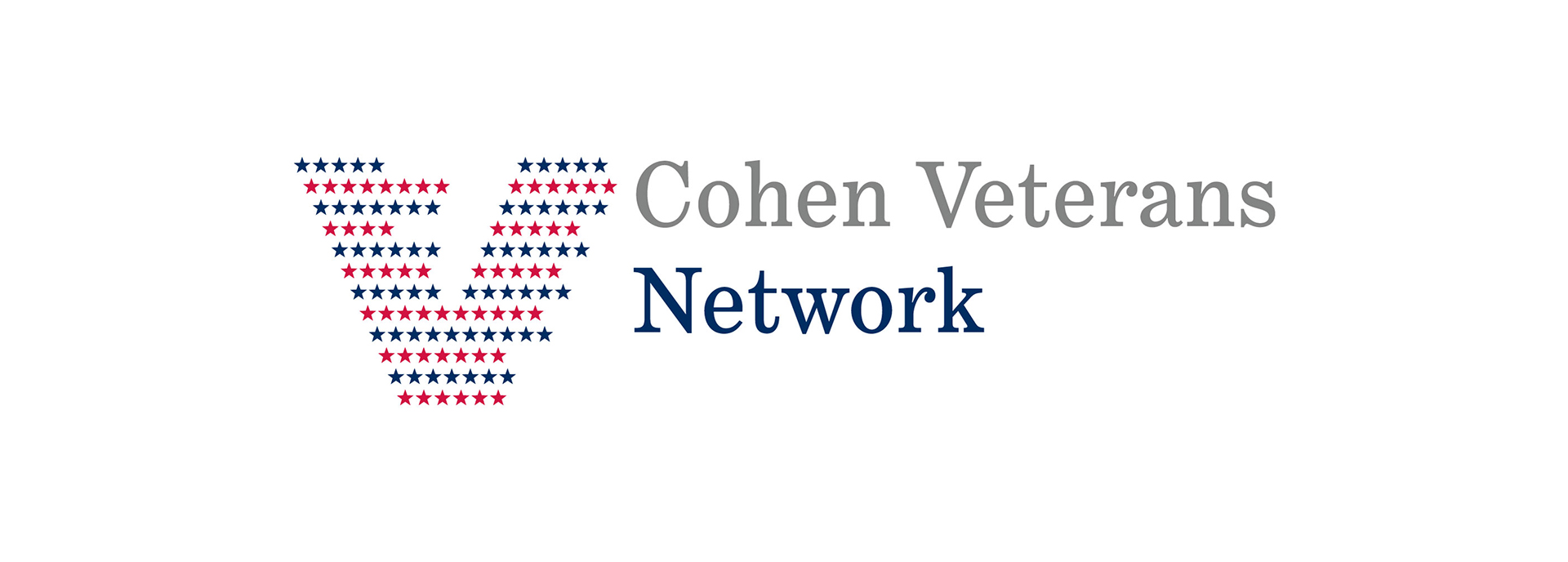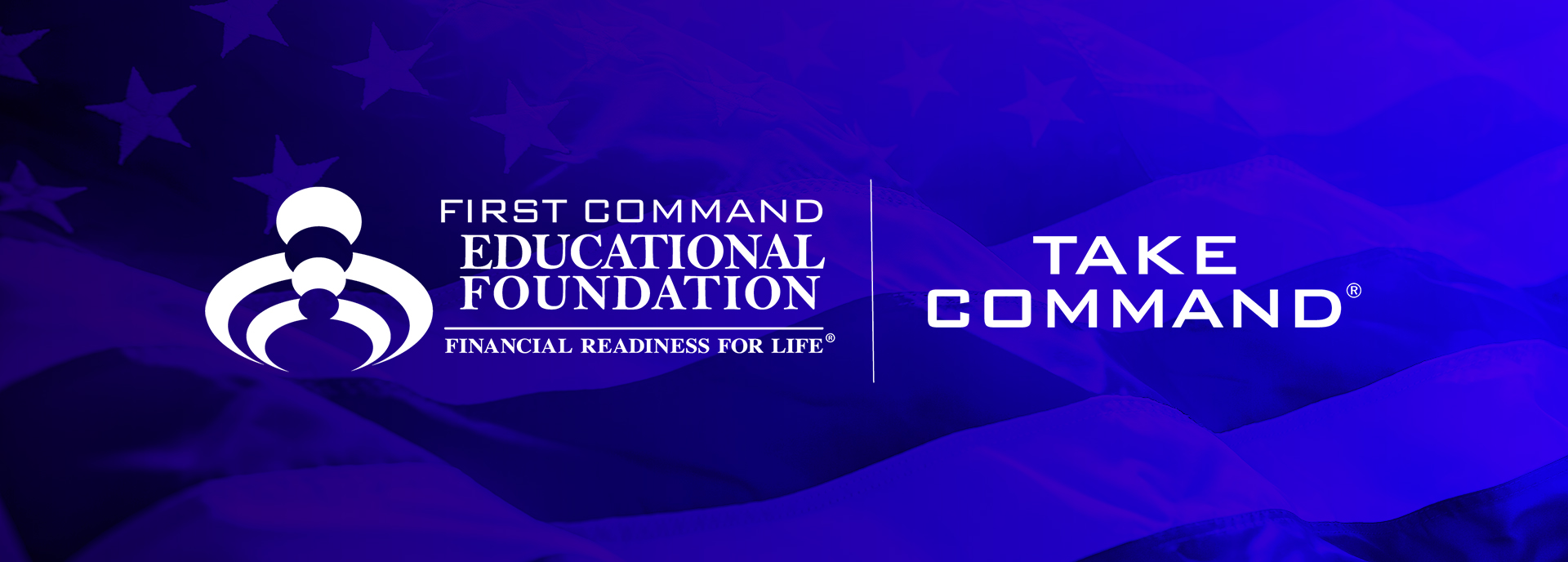Author
Subscribe to Newsletter
Related Posts
INDUSTRY EVENT: Special Needs Planning Symposium
Diversity, Equity & Inclusion Insights
Scholar Appreciation

This message has been included with the scholar’s approval. A Center for Military and Veterans Affairs Alumna Heather Caral, military spouse of U.S. Navy Active Duty, expresses her gratitude to the Center for Military and Veterans Affairs upon completion of the ChFC® program:
I wanted to take a moment to express my heartfelt gratitude for the Center’s guidance and unwavering support throughout the two years of the ChFC® program at The American College of Financial Services. I truly appreciate the impact it has had on both my professional and personal growth.
The scholarship backed by donors from the program made me feel like I had a community cheering me on every step of the way.
The accomplishment I've achieved means a great deal to me, and I am optimistic about the opportunities that the future holds. Thank you for believing in me.
Robert Moldoff Appointed Chief Information Officer at The American College of Financial Services

KING OF PRUSSIA, PA – March 12, 2024 – The American College of Financial Services announced that Robert Moldoff has been named as Senior Vice President and Chief Information Officer. In this role, Moldoff will be responsible for aligning technology strategy and operations to support The College’s Strategic Plan and vision.
"Bob's leadership and integrity, coupled with his expertise in information technology make him the perfect leader to continue to elevate and innovate information technology at The College,” said George Nichols III, CAP®, president and CEO of The American College of Financial Services. “We look forward to continuing to ensure our IT is at the forefront for higher education and the financial services professionals we serve.”
Moldoff comes to The College with over 30 years’ experience creating and leading information technology (IT) strategy, enterprise application development, IT operations, and cybersecurity. Throughout his career, he has worked as a strategic partner and trusted advisor to executive leadership, guiding design and implementation of complex technology systems.
“I look forward to working with my colleagues at The College to forward the mission of uplifting the financial services profession and society,” said Moldoff. “Technology is at the core of how we deliver value to our students and alumni, and I’m excited to continue to innovate and collaborate to support the systems that deliver our offerings.”
Prior to joining The College, Moldoff served as Chief Information Officer at CGFNS International, Inc., a non-profit serving the global healthcare market with comprehensive credentialing and assessment products. In that role, he had overall responsibility for all technology strategy, application development, security, and information technology operations. Before that, Moldoff was Director of Technology at 4R Systems, Inc., a market leader in retail inventory profit optimization. There, he managed the development, production operations, and cloud migration of large-scale analytical database systems. He also spent over 20 years in different technology roles at SCT and SunGard managing the development, implementation, and support of administrative technology solutions for non-profit higher education institutions.
Moldoff has an Executive Master of Business degree from the Fox School of Business of Temple University and a Bachelor of Science degree in Information Systems from Widener University. He served for nine years in the U.S. Coast Guard and is a Life Member of the Disabled American Veterans.
###
ABOUT THE AMERICAN COLLEGE OF FINANCIAL SERVICES
Founded in 1927, The American College of Financial Services is the nation’s largest nonprofit educational institution devoted to financial services professionals. Holding the highest level of academic accreditation, The College has educated over 200,000 professionals across the United States through certificate, designation, and graduate degree programs. Its portfolio of applied knowledge also includes just-in-time learning and consumer financial education programs. The College’s faculty represents some of the foremost thought leaders in the financial services industry. Visit TheAmericanCollege.edu and connect with us on LinkedIn, Twitter, Instagram, Facebook, and YouTube. Discover all the ways you can expand your opportunities with us.
Contact:
Sarah Tremallo
908-967-0381 / stremallo@jconnelly.com
Lindsey Allumbaugh
678-643-1310 / lindsey.allumbaugh@theamericancollege.edu
College News Roundup: Week of February 26, 2024
Baron’s | Equity Market Outlook 2024
February 2, 2024
In this article, College assistant professor of financial planning Audrey Snell, MBA, CFP®, ChFC®, RICP® discusses the impact of a “soft landing” from recent inflationary worries as well as what may still be to come from markets in 2024.
Yahoo Finance | 401(k) Millionaires Grew in Late 2023: How to Save Like One
February 27, 2024
In this article, a pair of financial services thought leaders discuss the timely takeaways of The College’s Retirement Income Literacy Survey with journalists from Yahoo Finance.
Wealth Solutions Report | WSR Pathfinder Awards – Top Black Industry Leaders Of 2024
February 27, 2024
In this piece, College President and CEO George Nichols III, CAP® is placed among an industry list of the top Black leaders of 2024 in financial services in celebration of Black History Month.
Plan Sponsor | New Income Planning Tool To Advise Retirees on How Much to Withdraw
February 27, 2024
In this article, College thought leader Michael Finke, PhD, CFP® and Tamiko Toland announce the launch of IncomePath — a tool to help retirees visualize what they can spend in retirement, while factoring in investment risk, annuity options, and life expectancy.
Smart Money Circle | How to Make Educated Decisions
February 28, 2024
In this podcast episode, College FinServe Network ambassador Heather Welsh, CFP®, AEP®, MSFS shares her insights from years in the profession on how to help advisors and clients make educated decisions about financial matters.
2024 Center for Military and Veterans Affairs Initiatives

2024 Center for Military and Veterans Affairs Initiatives
With a successful 2023 behind them, the Center for Military and Veterans Affairs is looking forward to advancing its strategic priorities and initiatives in 2024.
First, the Center will be focused on engaging more individual donors and corporate and foundation partners to advance its mission of providing scholarships to active duty, guard, reserve members, veterans, and their spouses.
The Center will continue to award scholarships for the Wealth Management Certification Program® (WMCP®) focused on transitioning personnel to the civilian sector or into financial services and its cohort program to aid in its scholars’ success.
The Center will work to host future Military Resource Group (MRG) webinars and provide educational and professional development opportunities for its scholars and MRG members at both events for the Center and The American College of Financial Services. In 2023, the Center developed a Military Consumer Financial Education Program through partnerships with military financial educational foundations and this year will work to increase participating companies.
Offers
FinServe Ambassador Champions the Power of Independent Advisors

Along with his wife (Kennah) and two other partners (Warren and Jennifer), Parham runs Innovative Wealth Building (IWB), an RIA firm headquartered in California, MD, but with a reach that spreads across the country. It’s a successful business that operates alongside many of the giants in the financial services industry – a fact that always pushes RIAs to continually seek new ways to grow and scale. The journey between these two worlds is one that Parham himself has navigated.
“When I went to college, I had no idea what I wanted to be when I grew up,” he says. “I was lucky enough to land an internship at Northwestern Mutual when I was 20 and as those summer days just flew by, I realized this was what I wanted to do for the rest of my life.”
After his experience with a large national firm like Northwestern, Parham’s professional career started out a bit smaller as a financial advisor for First Command, a boutique firm mostly serving the military community. He was eventually promoted to district manager and associate director of training, helping to welcome many other new advisors to the field, before deciding to take a leap over to Prudential, one of the largest firms in the industry.
“Working at Prudential really opened my eyes to what was out there,” he says. “At my previous company, I hadn’t gotten much of a chance to experience life outside of the fishbowl. During my time at Prudential, I learned a lot more about the industry and the vastness of the opportunities that I wasn’t even aware of. I also began engaging in more complex planning with high-net-worth clients, something I’d never gotten to do before, and I wanted more of that.”
Independence in Practice
Once his contract with Prudential was up, Parham decided to make another leap: from the corporate world to the field of independent advising. This was the genesis of IWB.
“After almost 10 years in the industry, I knew what I liked and what I didn’t like, and I knew that I could use those ideas combined with my strengths to build a financial planning utopia for my clients,” he says.
“When you’re independent, you can do what you think and know is best for your clients. Instead of having to keep your opinions to yourself and toe the company line, you’re free to chart your own path.”
The transition to independence, as Parham describes it, broke down into three core promises to the clients he worked with: better investment services, better technology, and lower fees. The first two sprung from his newfound freedom as an independent advisor to make the decisions he felt were right for himself and those he served, and the last was made possible by the lack of overhead that larger companies have to factor into their service models. While the process of building the new firm was a multi-year endeavor, he says he noticed the difference right away – as did many of his clients.
“The first sign that we were moving in a good direction was that by the time we had finished transitioning all our clients over to IWB, many of them were already recommending us to other people,” he says. “When we first started, we didn’t even have a website. Now, we get requests through it for new client introductions multiple times a week.”
However, Parham also isn’t shy about the challenges that independence brings – including a massive amount of decision-making that can sometimes be overwhelming.
“When you’re independent, you don’t have a parent company to fall back on. If things aren’t excellent, nobody’s on the hook for that but you,” he says. “It’s a big world with a lot of choices, and if you’re not careful, you can fall victim to decision fatigue. It’s like birthday shopping for a significant other: there are so many options out there, but how do you decide on the best one?”
The Armor of Knowledge
In the midst of all these choices, however, Parham says one thing has helped keep him on course: the education he received from The American College of Financial Services.
“Being an RIA instead of working for a broker-dealer is like swimming in the ocean as opposed to a pool. It can be lonely, and there may even be sharks in the water. Working with The College has shown me there are lots of people out there just like me, and has allowed me to collaborate with others in ways that have proved to be mutually beneficial for all parties.”
Parham says that he was initially self-taught when joining the industry, but began his learning journey with The College through its CFP® Certification Education Program to earn the coveted industry-standard mark. From there, he took advantage of The College’s interconnected programming to branch out to the Chartered Life Underwriter® (CLU®), Chartered Financial Consultant® (ChFC®) and Wealth Management Certified Professional® (WMCP®) designations.
“The College’s education has been like body armor for me,” he says. “The WMCP® especially gave me the knowledge and confidence to work with more up-market clients and higher-net-worth individuals I’d never spoken with before, and I’ll absolutely be a lifelong learner.”
One of Parham’s more recent acquisitions is the Retirement Income Certified Professional® (RICP®) designation, which he says has helped him focus on the critical needs of clients at or nearing retirement, including Society Security claiming, long-term care and longevity risk, asset management, and wealth transfer. However, it’s also given the tools to approach another pool of clients as well–those who may be young, but are already looking to set themselves up for the future.
“A portion of my clients are from the West Coast and the Los Angeles area–people in their 20s and 30s who may be high earners but not rich yet–and many of them don’t know that small steps today can reap big benefits for tomorrow,” he says. “Almost everyone wants to retire, and even people who don’t think they’ll be able to will usually jump at the chance if you show them it’s possible and what to do about it. The difference between having a $900,000 nest egg and having maybe more than $3 million in the bank can sometimes be as simple as a few small adjustments–and that’s the knowledge the RICP® has given me.”
Maintaining RIA Excellence in a Changing World
Building and running an independent practice is a lot of hard work, Parham admits–but when asked if he ever second-guesses his decision, his answer is a definitive no.
“Going RIA has led to an almost unbelievable improvement in my career and in my life,” he says. “If you do it right and prepare for it properly, you’re going to wonder how you lived without it. People ask me if the grass is greener on this side of the fence, and I sometimes tell them that if you go RIA, you might realize you didn’t even have any grass on the other side to begin with.”
Parham compares the business of running an independent practice with the idea of owning a home as opposed to renting one: when renting, you might not have to be as focused on all the things to do, but owning comes with a greater sense of pride along with the responsibility. He does acknowledge, though, that further change and evolution is needed both in the profession and in society.
“The RIA space is probably less diverse than the broker-dealer world, and our industry as a whole isn’t as diverse as many others,” he says. “When you look at the wealth distribution in America and the types of people who generally hold the wealth, you get a sense of why that might be, but it’s not just that; many aspects of the industry just aren’t meant to cater to certain populations who may want to get into it.”
Parham cites paid family leave as one such policy, as many companies in the financial services industry still may not offer it to their employees–especially working mothers.
“We’ve made some progress, but overall financial advising as a profession isn’t set up to accommodate many people’s lives and circumstances. As a result, the financial services industry tends to have a very high rate of attrition. We need to rewrite the rules, and that’s where the RIA space comes in. Here, I can be more flexible and do things that I believe are the best practices to attract and retain diverse talent. I can really be a part of the change.”
Diversity, Equity & Inclusion Insights
Cohen Veterans Network

Cohen Veterans Network (CVN) was founded by philanthropist Steven A. Cohen, who made a $275M commitment to launch a network of mental health clinics in April of 2016 to serve veterans and families. CVN’s focus today is on post-9/11 veterans, active duty, and families. These areas of focus represent a concerted effort to get ahead of transitional challenges before they become chronic or acute. Each Cohen Clinic assesses veterans based on their specific needs and makes every effort to see pre-9/11 veterans based on clinician availability.
Cohen Veterans Network is a national network of mental health clinics that serves post-9/11 veterans, active duty service members (with a TRICARE referral) including National Guard and Reserves, and military family members. There is no cost for care for those without insurance and the ability to pay will never be a barrier to care at CVN clinics.1
Disclaimer: The information provided in this article is intended for general informational purposes only. It should not be considered as financial, legal, investment or other professional advice. Readers should consult with the relevant professionals for specific advice related to their situation.
We are not affiliated, associated, authorized, endorsed by, compensated or in any way officially connected with any other company, agency, or government agency in this article. All product, service and company names are trademarks™ or registered® trademarks of their respective holders. Use of them does not imply any affiliation with or endorsement by them.
Before making any decisions based on the information contained in this article, you are strongly advised to refer to alternative, independent sources of information to substantiate the basis for your decision. It is your sole responsibility to satisfy yourself prior to using the information in any way and to seek appropriate advice before taking or refraining from taking any action in reliance on any information contained in this article.
Diversity, Equity & Inclusion Insights
Partnership with First Command Educational Foundation

The American College of Financial Services is proud to partner with First Command Educational Foundation on the TAKE COMMAND Financial Education Program!
- Online interactive financial education program for active duty, guard, reserves, veterans, and their spouses
- Developed, delivered, and driven by two nonprofit entities dedicated to improving financial readiness and economic situations of those who serve
- Credit transferable to other College courses and programs